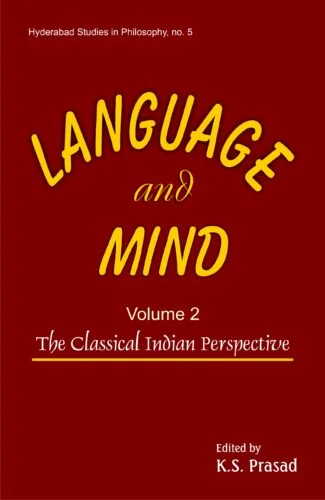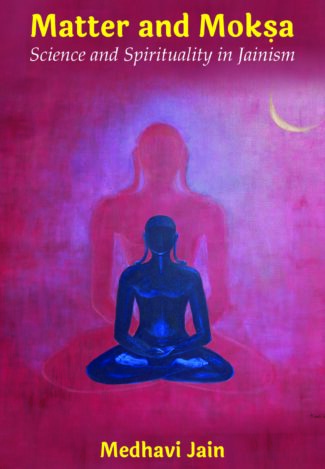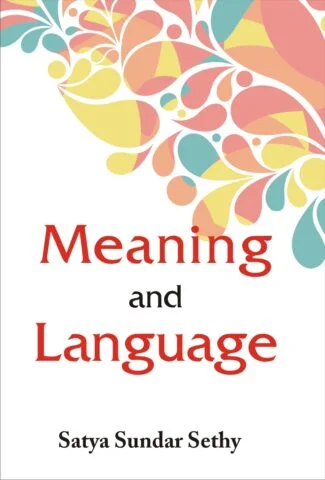Showing 121–132 of 302 results

This book portrays kundalini from its psycho-physical and spiritual implications and impacts and tries to alleviate some misconceptions about the nature of cakras the consciousness centres of human body. It deals at length with the phenomena of higher levels of spiritual evolution raising the kundalini and opening the cakras.
“Tantra, an exposition of Sri-vidya, is a thread of Vedic tantu. This ray of the light of consciousness folds upon itself as a coil (kundala) forming the coiled energies of the conscious universe, thus becoming kundalini.
This book looks at Tantra from a different perspective against the common view of it being more associated with its carnal/sexual nature. Tantra is the “art of celibacy”. Human beings are a wave in the ocean of Consciousness and this wave passes through our psycho-physiological complex compound, forming the personal kundalini. All sensations in human body are manifestations of the presence of kuõóalinã. Our desires are the signals released by the kundalini. Different psycho-physical apparatuses are plugged into it like electric plugs in different socket.
This volume, while portraying kundalini from its psycho-physical and spiritual implications and impacts, tries to alleviate some misconceptions about the nature of cakras — the consciousness centres. It deals at length with the phenomena of higher levels of spiritual evolution — “raising the kundalini” and “opening the cakras” — helping one drop all mental habit patterns to achieve “liberation”.
This book is a “must read” for the practitioners of Yoga and all who want to take their spiritual life to a new realm. “

This work is a collection of papers dealing with the problems concerning the relation between language and mind. It focuses on the recent developments in the philosophy of language and mind, particularly with regard to the computational approach to this subject. This is the first of a two-volume project dealing with language and mind.
This work is a collection of papers dealing with the problems concerning the relation between language and mind. It focuses on the recent developments in the philosophy of language and mind, particularly with regard to the computational approach to this subject. The computational approach defended by Fodor and others has changed the very concept of language and mind thus ushering in a new philosophy in recent years. But, not unsurprisingly, there has been a vehement opposition to this approach led by Searle and others which has exposed the limitations of computationalism as a philosophical theory. The controversy regarding language, mind and meaning between the computationalists and their opponents is the main theme of this book. Besides these differing ideologies the book also highlights the general issues regarding meaning, intentionality, necessity, a prioricity, etc. which have an important place in the philosophy of language. This is the first of a two-volume project dealing with language and mind. This book deals exclusively with the Western perspective of the problems of language and mind, while Volume II will deal with the classical Indian approach.

This is a two-volume project which throws light on the various problem and debates on the relation between language and mind. They analyse both the classical Indian perspective as well as the Western perspective, stating that mind is behind all the linguistic activities.
The relation between language and mind is a fascinating area in both the Western and the Indian philosophical modes of thinking. Indian philosophers of language raise the question: How does the hearer derive knowledge from the speakers utterances? In the process of finding an answer, they developed some important insights into language and cognition, language generated awareness, etc. In many of their formulations the concept of mind is assumed as the background of linguistic activity. This volume throws light on various debates concerning the relation between language and mind as conceived in the Classical Indian Tradition. Papers in this volume have been arranged in three groups based on their thematic composition: (1) the inadequacy thesis proposed by the Madhyamika school of Buddhism and the Vedantins which suggests that language fails to express certain experiences; (2) the identity thesis held by the Grammarians which suggests that language is the Reality; and (3) the adequacy thesis supported by the Naiyayikas which suggests that whatever exists is capable of being known and whatever is known is capable of being expressed in language. This book is the second of a two-volume project dealing with language and mind. The first dealt with the Western perspective and the present work deals with the Classical Indian Perspective.

Dr. George Victor studies comprehensively Sankaracaryas teachings on Vedanta his views on scripture, perception and inference as pramanas or standards of knowledges; his explanations of the relation between Brahman and atman, Brahman and äsvara, maya and the world; and his concepts of jnana marga, karma marga and moksa.
Vedanta is recognised as the leading philosophy of the Vedic tradition. A major proponent of Vedanta was Shankaracarya who laid the basis for the propagation of Vedanta before the beginning of the Middle Ages. His contribution has been so immense and significant that often Vedanta has been interpreted as synonymous with Advaita Vedanta of Shankara.

Dr. George Victor studies comprehensively Sankaracaryas teachings on Vedanta his views on scripture, perception and inference as pramanas or standards of knowledges; his explanations of the relation between Brahman and atman, Brahman and äsvara, maya and the world; and his concepts of jnana marga, karma marga and moksa.
Vedanta is recognised as the leading philosophy of the Vedic tradition. A major proponent of Vedanta was Shankaracarya who laid the basis for the propagation of Vedanta before the beginning of the Middle Ages. His contribution has been so immense and significant that often Vedanta has been interpreted as synonymous with Advaita Vedanta of Shankara.

Yoga is the science of harmonious union with one’s own self, the world, and the cosmic law that governs the entire universe. This book of commentary by Guru Nitya Chaitanya Yati unlocks the secrets of this perennial wisdom and shows how pertinent and valuable the transforming path of yoga is to our lives today.
At the turn of the twentieth century a wise teacher from south India described the culmination of Yoga in a very alluring manner: When mind, the bumble bee, sips the honey-like sweetness of ones own bliss, fluttering ceases and it is drawn into union. This poetic description given by Narayana Guru echoes and elaborates the definition of Yoga given in one of the foundation texts of Yoga, the Bhagavad Gita (VI:23): Yoga is disaffiliation from the context of suffering. These definitions are not academic. They speak directly to our experience of life, which can range from being punctuated by suffering to being permeated by it. They also speak to our constant yearning and search for happiness. Yoga originated as a natural response to this human condition. It is why it was developed, why its teachings have been followed, elaborated, and passed down from time immemorial to the present. Yoga is the science of harmonious union with ones own self, the world, and the cosmic law that governs the entire universe, ranging from the cognizing of a sensation to the formation of a galaxy. This commentary by Guru Nitya Chaitanya Yati unlocks the secrets of this perennial wisdom and shows how pertinent and valuable the transforming path of Yoga is to our lives today. A special appendix, Letters to an Aspiring Yogi, offers a basic orientation and initiation into the practice of Yoga, which, as Guru Nitya makes clear, Is a common path for all human beings, irrespective of their cultural, geographic, and religious affiliations.

The book is an attempt to critically examine the cardinal doctrines of logical positivism as expounded in the writings of A.J. Ayer. Logical positivism has provided us with the tools to analyse the concepts of philosophy.
The book Logical Positivism Revisited is an attempt to expound and critically examine the cardinal doctrines of logical positivism. The logical rigour with which the followers of this school of thought analysed the issues concerning language, knowledge and truth shows that the problems of philosophy can only be solved by resorting to logical analysis. The view that problems of philosophy surface because of our misunderstanding or loose correlation of our language has provided a new dimension to our philosophical thinking. Moreover, logical positivism’s anti-metaphysical stance highlights its taste for logic, mathematics and science and its distaste for speculative thinking in philosophy. Such an attempt in philosophy is viewed by the logical positivists as a revolution in philosophy.

This book is essentially a poetic/spiritual treatment of poetic and spiritual themes. It presents a breadth of understanding that illuminates the text, and extends the meaning of the text through both personal and universal experience.
Developed from Guru Nityas talks given at the Stanford and Portland State Universities, the book represents a study in the universal force of love in two major examples of sacred and prophetic literature : Jayadevas Gita Govindam and the poetry of St. John of the Cross. The foundation of Guru Nityas approach lies in an exciting, at once original unification of Eastern meditation practices and Western humanistic psychological theory. The outcome is his Love and Devotion, highlighting how the erotic mysticism of Jayadeva and St. John of the Cross exemplify as the two different expressions of the perception of God. Unlike most works of literary criticism, Nityas book presents a breadth of understanding that illuminates the text, and then extends the meaning of the text in terms of both personal and universal experience. It is essentially a poetic and spiritual treatment of poetic and spiritual themes, for Love and Devotion is itself a treatise on spirituality.

India is a land where spiritual masters and mystics have blossomed from time to time, sharing their spiritual experience and knowledge for the benefit of all. This book throws light on a rarely-studied aspect of Indian spirituality, its women mystics and will be useful to all those interested in spirituality or in studying it as a subject.
India is a land where spiritual masters and mystics have blossomed from time to time, sharing their spiritual experience and knowledge for the benefit of all. They have explored a variety of spiritual, religious and philosophical dimensions to unravel the meaning of existence and significance of life. This book throws light on a rarely-studied aspect of Indian spirituality, its women mystics. The work is an account of the life of a master mystic, Shiva Yogini Amma, a woman who traversed new realms of experience in her spiritual quest. It is a record of her life from her birth to her attaining the nirvikalpa samadhi and after, and her teachings. It details the process of her spiritual realization; a unique experience exploring spiritual states with a foreknowledge and mastery. It explains her understanding of spiritual concepts relating to form and formlessness, maya, reality. It deals with her method of using the body and mind to attain the goals of the spirit. Based on one of her first woman disciples, Satyananda Yogini’s recollections, the account elaborates on life in Shiva Yogini Amma’s ashrama. It examines her growth as a samnyasin by delving into her daily activities, trances, interactions with disciples, and her teachings, particularly yoga instructions, to learners. The book will be useful to all those interested in spirituality or in studying it as a subject.

India is a land where spiritual masters and mystics have blossomed from time to time, sharing their spiritual experience and knowledge for the benefit of all. This book throws light on a rarely-studied aspect of Indian spirituality, its women mystics and will be useful to all those interested in spirituality or in studying it as a subject.
India is a land where spiritual masters and mystics have blossomed from time to time, sharing their spiritual experience and knowledge for the benefit of all. They have explored a variety of spiritual, religious and philosophical dimensions to unravel the meaning of existence and significance of life. This book throws light on a rarely-studied aspect of Indian spirituality, its women mystics. The work is an account of the life of a master mystic, Shiva Yogini Amma, a woman who traversed new realms of experience in her spiritual quest. It is a record of her life from her birth to her attaining the nirvikalpa samadhi and after, and her teachings. It details the process of her spiritual realization; a unique experience exploring spiritual states with a foreknowledge and mastery. It explains her understanding of spiritual concepts relating to form and formlessness, maya, reality. It deals with her method of using the body and mind to attain the goals of the spirit. Based on one of her first woman disciples, Satyananda Yogini’s recollections, the account elaborates on life in Shiva Yogini Amma’s ashrama. It examines her growth as a samnyasin by delving into her daily activities, trances, interactions with disciples, and her teachings, particularly yoga instructions, to learners. The book will be useful to all those interested in spirituality or in studying it as a subject.

The book deals with the leading theory and practices of Jainism, putting much focus on ethics, thereby to the theory of karma, it also delves upon with the theory of yoga philosophy of non-absolutism, and the concept of time, space, metaphysics, etc.
“In Matter and Mokṣa, matter indicates the subject of science, whereas mokṣa refers to the peak of spirituality, as described by the Indian thinkers of Jaina philosophy. Interestingly, science and spirituality have always been intertwined subjects for Indian scholars. Where one is incomplete without the other, as the spiritual self is the only one who embarks on the journey to be a scientist. The book starts with the leading theory and practices in Jainism by throwing light upon the importance of ethics in one’s life. In Indian culture, ethics are directly linked with the actions one performs; hence covers the theory of karma. Then comes the importance of knowledge in improvising one’s reactions to lead a peaceful and non-violent life. Moving ahead comes yoga, which holds a very high significance in all Indian traditions and according to Jaina philosophy, it is an inseparable part of a being’s life. It further talks about the basics of the theory of non-absolutism as described by the 24th and the last Ford maker Mahāvīra.
The book throws light upon the concept of space, time, cosmography and metaphysics. It also covers the spiritual aspect by explaining the concepts of soul, mind and body, the importance of meditation, nine categories of truth, the concept of God and then the final destination, the ultimate purpose of existence mokṣa as explained in Jainism.”

This volume is a study of two semantic perspectives meaning atomism and meaning holism. It mainly focuses on contrasting these perspectives or models of meaning and evaluates them from different philosophical standings to arrive at an explicit conception of meaning that will correctly reveal the semantics of natural language.
This volume explores the nature of meaning and the way it functions in language. Philosophers such as Aristotle, Thomas Acquinas, John Locke, Immanuel Kant and David Hume had keen interest in the study of meaning, though it was not central to their philosophical inquiry. But the contemporary philosophy takes a radical twist towards language which is characterized as linguistic turn in philosophy. Meaning and its correct characterization are the foremost concerns of contemporary philosophy.
Study of two semantic perspectives meaning atomism and meaning holism is the core content of this book and it mainly focuses on contrasting these two perspectives or models of meaning and evaluates them with a view to arrive at an explicit conception of meaning that will correctly reveal the semantics of natural language.
In doing so, it vividly discusses the two perspectives of meaning along with the atomistic theory of Gottlob Frege, Wittgensteins approach to meaning, logical positivists conception of meaning, why meaning atomism fails to capture the uniqueness of meaning, Quinian theory of meaning holism, Davidsons approach to meaning holism, and Later Wittgensteins view on meaning holism, thus covering a wide gamut of the topic.
| × |
|
Socio-Literary and Cultural Study of Indian Society 1 x ₹1,350.00 |
| × |
|
Navya Nyaya Philosophy of Language 1 x ₹360.00 |